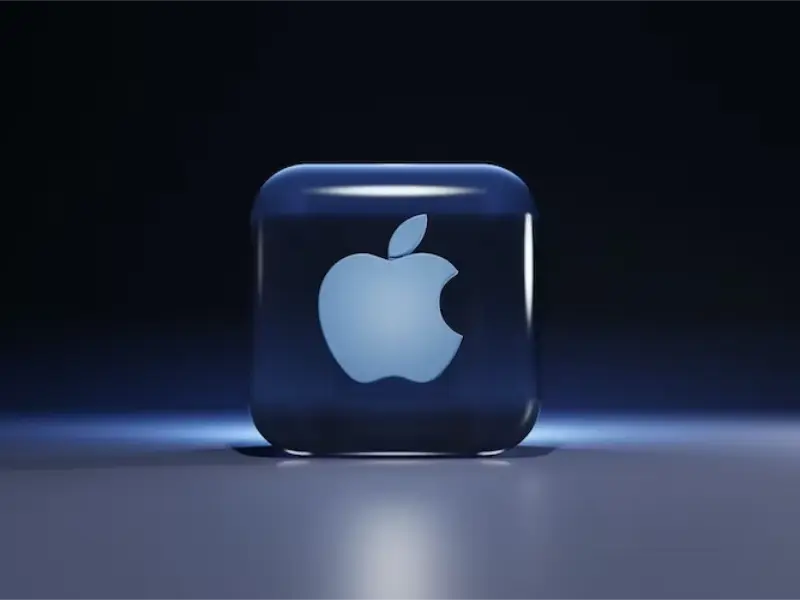No need to sift through the web for crucial stories – we’ve got you covered. Here are the key global technology highlights for December 27, 2023.
1. Apple appeals US ban on Watch Series 9 and Ultra 2
Apple appeals U.S. ban on Watch Series 9 and Watch Ultra 2, citing patent infringement on Masimo’s blood oxygen tech. Seeks emergency stay for two weeks while awaiting a decision on redesigned models. Claims irreparable harm if banned models remain off shelves. U.S. Customs to decide on redesigned versions by January 13, 2023. (The Verge)
2. Biden administration upholds Apple Watch ban
The U.S. upholds the ban on Apple Watch sales due to a patent dispute with Masimo and Cercacor. The ban, effective since December 26, 2023, resulted from Apple infringing on two patents. Apple is appealing, emphasizing disagreement with the exclusion order and aiming to return affected models to U.S. customers promptly. (Nasdaq)
3. Intel gets $3.2B grant for $25B chip plant in Israel
Israel grants Intel a $3.2 billion subsidy for its $25 billion chip plant, marking a major investment. The move supports Intel’s global supply chain efforts. Amid tensions, it’s a significant show of support, and Intel commits to buying $16.6 billion from Israeli suppliers. The new facility, Fab 38, opens in 2028, creating thousands of jobs. (Reuters)
4. Apple appeals Watch import ban
Apple appeals the ban on watch imports after the Biden administration allows the decision, based on a complaint from Masimo. The tech giant files an emergency request to halt the ban until U.S. Customs decides on redesigned versions, with the customs office set to make a decision on Jan. 12. (Reuters)
5. Chinese gaming firms’ buyback plans
Smaller Chinese gaming companies unveil share buybacks, seeking to reassure investors post-regulatory concerns. Draft rules proposing bans on certain online game incentives caused share plunges. Buybacks, totaling $110 million, follow a perceived softening in China’s video game regulator’s stance, with recent license approvals viewed positively for the industry’s development. (XM)
6. Tencent, NetEase recover amid softened gaming stance
Tencent and NetEase experience partial recovery in stock value after Beijing signals a softened stance on gaming regulations. The rebound, though, is limited, reflecting persistent investor concerns about the broader regulatory landscape for the gaming sector in China. (Bloomberg)
7. Jony Ive and Sam Altman have recruited Apple’s iPhone design chief to collaborate on AI devices
Apple’s iPhone design executive, Tang Tan, is leaving the company to collaborate with design guru Jony Ive and AI expert Sam Altman. Tan will work on an artificial intelligence hardware project, shaping the look and capabilities of new devices at Ive’s LoveFrom design studio. Altman will provide the software expertise for the project. (Bloomberg)
8. UK targets 2026 for driverless cars
The UK transport secretary aims for driverless cars on some roads by end-2026, expecting owner freedom. Legislation seeks approval by late 2024. While enhancing road safety is the goal, critics fear accidents without thorough development. Ford’s Mustang Mach E permits limited hands-free driving, but experts highlight the essential evolution of technology, software, and regulations. (BBC News)
9. China tightens video game rules
China introduces rules limiting spending and playtime in video games, focusing on in-game purchases. Tencent and NetEase face share declines. The regulations could reshape monetization and game design. While major firms may recover, smaller publishers struggle with layoffs and industry challenges in 2023. The rules expedite game approvals and mandate user data processing servers in China. Public comments open until January 22. (BBC News)
10. Digital ownership dilemma unveiled
Amazon, Sony, and Broadcom highlight limited ownership of digital purchases. Amazon deleted Kindle books, Sony restricts PlayStation video content access, and Broadcom ends perpetual VMware licenses. Concerns rise about genuine ownership. Solutions involve physical copies, DRM removal tools, and open-source software for user control over proprietary restrictions. (The Register)
11. Creating personalised GPTs with OpenAI
OpenAI unveils GPT builder for ChatGPT Plus subscribers, enabling personalized GPTs tailored for specific tasks. Users define goals, introduce preferences, and configure chatbot behavior. GPTs can interact with software uniquely, showcasing broader AI applications. This development reflects the evolving landscape of AI personalization and customization. (Wired)

